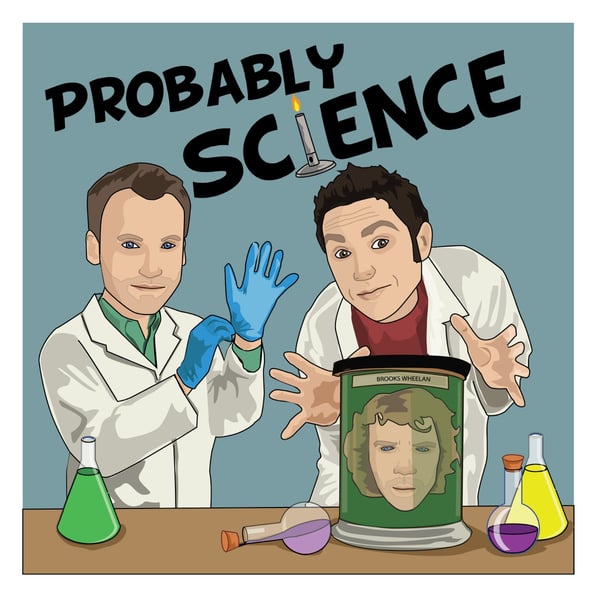Episode 213 - Professor Sophie Scott and Nick Doody
Probably Science
Andy Wood, Matt Kirshen
4.8 • 707 Ratings
🗓️ 4 July 2016
⏱️ 65 minutes
🧾️ Download transcript
Summary
Professor Sophie Scott (@sophiescott) of University College London's Institute of Cognitive Neuroscience welcomes Matt and past guest Nick Doody (@NickDoody) to her office to discuss her research on the neural basis of human speech processing, and specifically her study of laughter.
Transcript
Click on a timestamp to play from that location
| 0:00.0 | Probably Science |
| 0:02.0 | So much weird stuff on this office. |
| 0:13.0 | Yeah, I've been in this office too long. I've been here too long. I've just been in this building. |
| 0:18.0 | Let's just roll straight in off that, because this is a weird office. Welcome to Probably Science on the road. |
| 0:23.1 | We are in the UCL Department of Cognitive Neuroscience. |
| 0:28.5 | I'm Matt Kirshan, joined by guest host and friend of the show Nick Doody. |
| 0:33.1 | Hello. |
| 0:34.0 | And yeah, we're on the road. |
| 0:36.2 | And so I've stolen briefly some time out of Professor Sophie Scott's busy day |
| 0:41.4 | uh hey Sophie how are you I'm fine thank you fine um yeah we we met at numerous |
| 0:48.0 | you obviously you do real proper science but also you sometimes sometimes show up at various public engagement things. |
| 0:56.5 | And at some of those, they occasionally have comedy on as well, so I'll paths have crossed numerous times. |
| 1:00.7 | But what is it you actually do when you're being a real grown-up scientist? |
| 1:05.2 | I'm very interested in how we're doing exactly what we're doing now. |
| 1:08.4 | So what I want to understand is how our brains both control our voices and what we sound like, so why we sound the way we do, and how that can |
| 1:16.2 | change and how that can go wrong. And I'm also interested in how we're dealing with that |
| 1:20.5 | information when we hear other people's voices. So I'm interested in what we get out of voices |
| 1:24.1 | and how we put that together into like a sort of understanding or many |
| 1:28.1 | different sorts of understandings of what's going on. By what we get out of voices, do you mean |
| 1:31.9 | as in the tone rather than the linguistic content? Well, I'm interested in this linguistic content |
| 1:37.5 | and historically that's what psychology's looked at. We've, you know, somebody's opened their |
| 1:41.1 | mouth and started talking and we've assumed that the important thing there was the words. |
... |
Please login to see the full transcript.
Disclaimer: The podcast and artwork embedded on this page are from Andy Wood, Matt Kirshen, and are the property of its owner and not affiliated with or endorsed by Tapesearch.
Generated transcripts are the property of Andy Wood, Matt Kirshen and are distributed freely under the Fair Use doctrine. Transcripts generated by Tapesearch are not guaranteed to be accurate.
Copyright © Tapesearch 2025.

